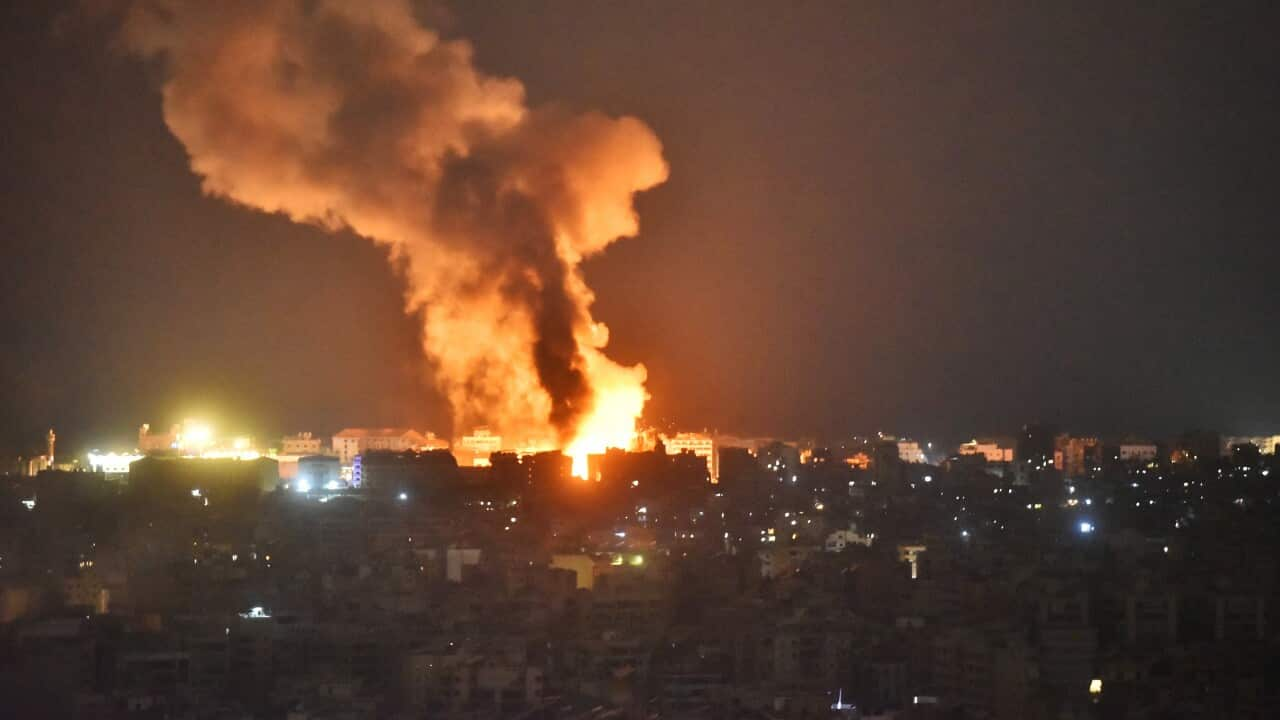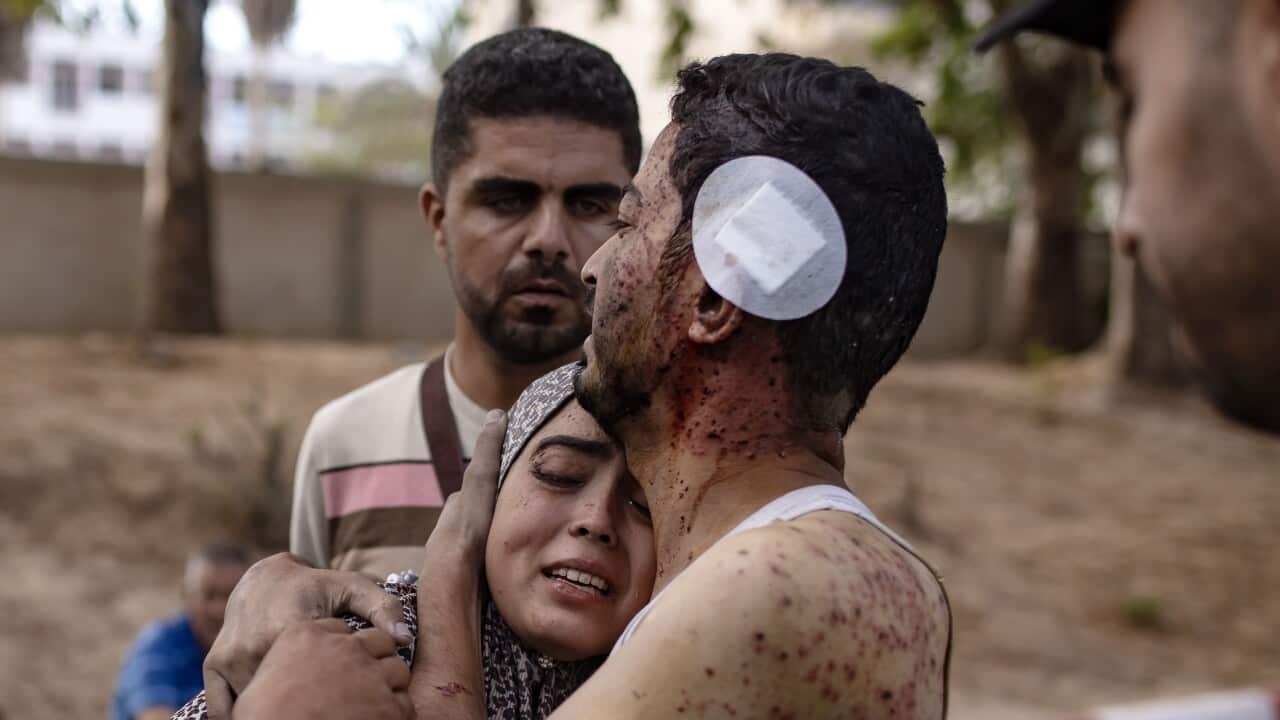Key Points
- Heavy strikes have rocked southern Beirut as Israel expanded its bombardment.
- Hezbollah leader Hassan Nasrallah's potential successor is reportedly unreachable.
- On Saturday, Israel made its first strike in the northern city of Tripoli.
Massive consecutive strikes hit Beirut's southern suburbs from late Saturday into Sunday, Reuters eyewitnesses said, sending booms across the city and sparking flashes of red and white for nearly 30 minutes visible from several kilometers away.
"Israeli enemy warplanes carried out four very violent strikes on (Beirut's) southern suburbs, and one strike on the Chweifat" area, with ambulances rushing to the site, Lebanon's National News Agency said.
The strikes came after days of bombing by Israel of Beirut suburbs considered strongholds for Iran-backed armed group Hezbollah, killing its leader Sayyed Hassan Nasrallah, and possibly his potential successor.
Lebanon's official National News Agency said the Hezbollah stronghold in south Beirut was hit by more than 30 strikes, which were heard across the city. Targets included a petrol station.
Israel's military said it "conducted a series of strikes on a number of weapons storage facilities" and infrastructure, stressing it had taken "numerous steps were taken to mitigate the risk of harming civilians".
A Lebanese security source said on Saturday that Hashem Safieddine, the potential successor, had been out of contact since Friday, after an Israeli airstrike near the city's international airport that was reported to have targeted him.
The Israeli military said it eliminated Nasrallah in a strike on the group's central command headquarters in Beirut on 27 September. Hezbollah confirmed he had been killed.
Lebanese security sources said Israeli strikes since Friday on Dahiyeh, a residential area and Hezbollah stronghold south of central Beirut, have kept rescue workers from scouring the site of Thursday night's attack.
Hezbollah has made no comment so far on Safieddine.
His loss would be another blow to the group and its patron Iran. Israeli strikes across the region in the past year, sharply accelerated in the past few weeks, have decimated Hezbollah's leadership.
Israel has been expanding its actions in Lebanon. On Saturday, it made its first strike in the northern city of Tripoli, a Lebanese security official said, and Israeli troops launched raids in the south.
At least eight strikes rocked Beirut’s southern suburbs late on Saturday local time, including close to the airport, according to Reuters witnesses, after the Israeli military warned some residents to flee.
Israeli military spokesperson Rear Admiral Daniel Hagari said on Saturday that Israel had killed 440 Hezbollah fighters in its ground operations in southern Lebanon and destroyed 2,000 Hezbollah targets. Hezbollah has not released death tolls.
Israel says it stepped up its assault on Hezbollah to enable the safe return of tens of thousands of citizens to homes in northern Israel, bombarded by the group since 8 October last year.
Israeli authorities said on Saturday that nine Israeli soldiers had been killed in southern Lebanon so far.
The Israeli assault has also killed hundreds of ordinary Lebanese, Lebanese officials say, and .
The violence came as the anniversary approached of Hamas' October 7 attack on southern Israel, in which 1,200 people were killed and about 250 taken hostage, according to Israeli tallies.
Israel's subsequent assault on Gaza has killed nearly 42,000 Palestinians, according to Gaza's health ministry, and displaced nearly all of the enclave's population of 2.3 million.
The impact on civilians has prompted widespread protests internationally. as the anniversary approached.
Iran, which backs both Hezbollah and Hamas, and which has lost key commanders of its elite Revolutionary Guards Corps to Israeli airstrikes this year, launched ballistic missiles at Israel on Tuesday. The strikes did little damage.
Israel has been weighing options for its response.
Health system 'on brink of collapse'
On Saturday, UN humanitarian coordinator in Lebanon Imran Riza warned about the impact of the strikes on health care, as Israel hits what it says are Hezbollah targets.
"Throughout the past days we have been witnessing an alarming increase in attacks against health care" in Lebanon, Riza said in a statement on X.
"Health workers are paying the heaviest price with their lives. The health system is on the brink of collapsing," he warned.
A day earlier, at least four hospitals in Lebanon announced the suspension of services amid ongoing Israeli bombardment.











